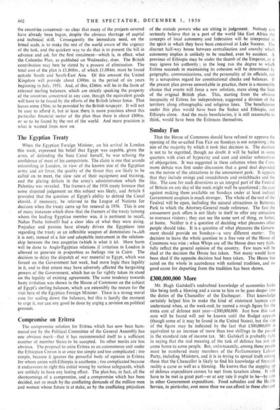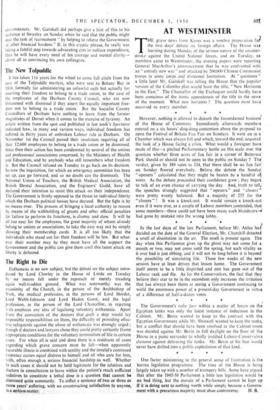£300,000,000 More
Mr. Hugh Gaitskell's undoubted knowledge of economics looks like being both a blessing and a curse to him as he goes deeper into the duties of the Chancellor of the Exchequer. That knowledge certainly helped him to make the kind of statement laymen can understand when, at the week-end, he named a rough figure for the extra cost of defence next year—f 300,000,000. Just how this vast sum will be found will not be known until the Budget appears (though some of it may be found in the United States), but the size of the figure may be indicated by the fact that £300,000,000 is equivalent to an increase of more than two shillings in the pound in the standard rate of income tax. Mr. Gaitskell is probably right in saying that the real meaning of the task of defence has not het come home to some people. But, unfortunately, among those people must be numbered many members of the Parliamentary Labour Party, including Ministers, and it is in trying to spread truth among these that the Chancellor is likely to find his knowledge of financial reality a curse as well as a blessing. He knows that the stepping up of defence expenditure cannot he oaet from taxation alone. It will have to be met in great part—or at any rate it ought to be—by cuts in other Goyenunent expenditure. Food subsidies and the Health Service, in particular, cost more than we can afford in these changed circumstances. Mr. Gaitskell did perhaps give a hint of this to his audience at Swanley on Sunday when he said that the. public might ease the task of rearmament " by helping to relieve the Government of other financial burdens." If, in this cryptic phrase, he really was taking a fateful step towards advocating cuts in welfare expenditure, then he will have every need of his courage and mental clarity— above all in convincing his own colleagues.







































 Previous page
Previous page